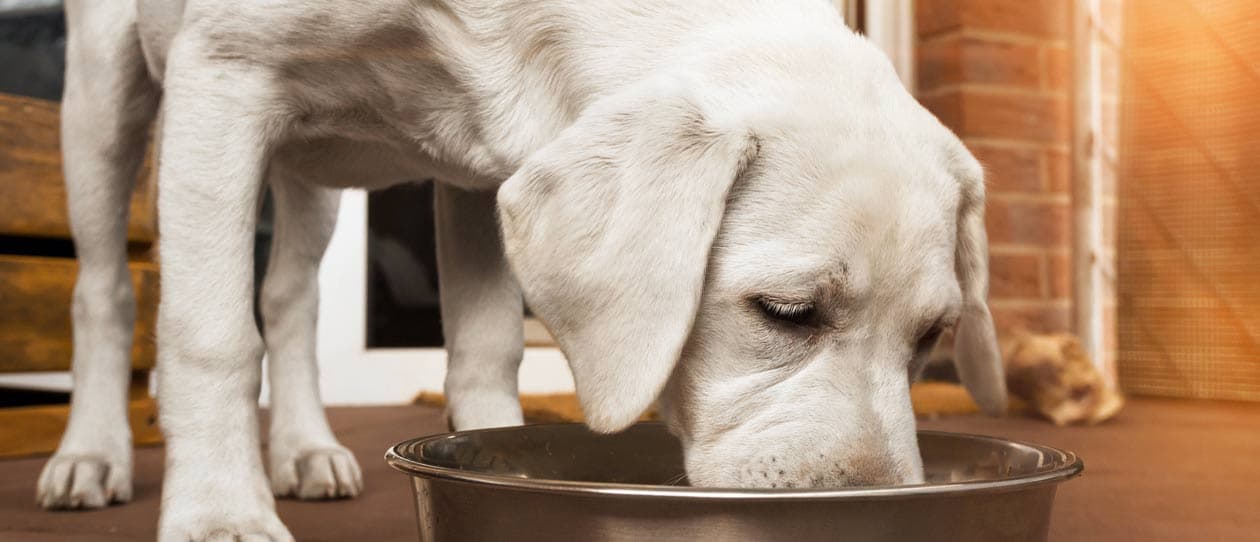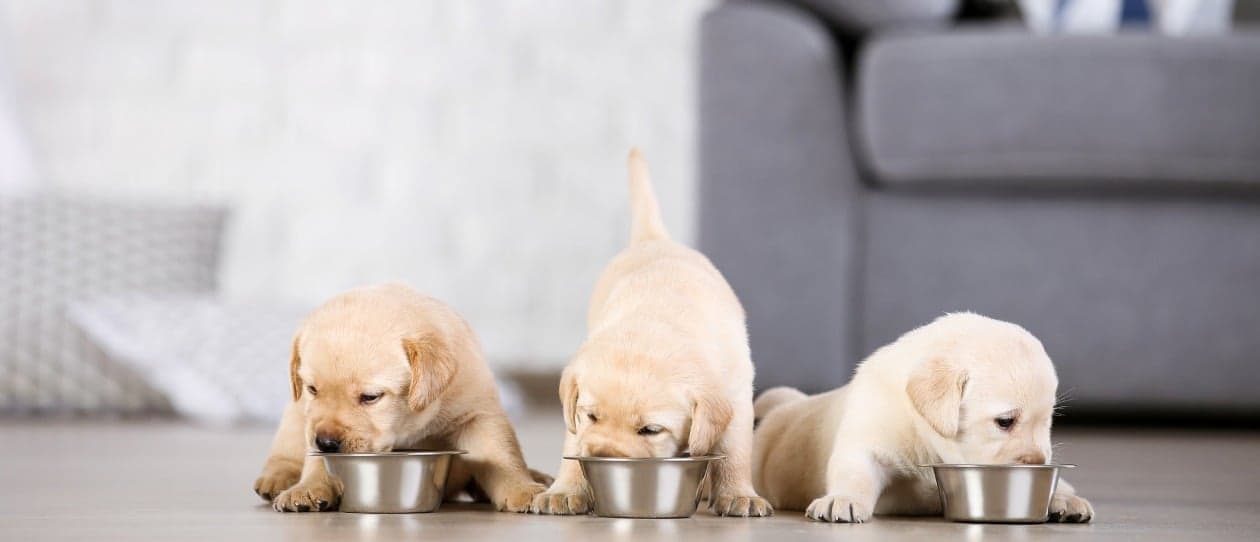
- A Guide To Perfect Your Pet's Health/
- Manage Your Dog's Digestive Health/
- How to feed your new puppy


Keep your pup's batteries charged
With their endless energy, puppies need almost double the energy intake of adult dogs. Puppies thrive on a quality balanced diet that’s high in protein (around 25-30%). There are many commercially available foods (or you can create your own puppy diet), but ask your vet’s advice about what’s best for your puppy’s breed and circumstances. And keep an eye on how your puppy responds – a good diet means he or she will be playful, have a shiny coat and firm brown droppings.
Don’t overfeed your pup
Although puppies grow up fast, they shouldn’t grow up too quickly. Overfeeding them can lead to problems with bone growth, particularly in medium, large or giant breeds. Puppies of these breeds should have two or three measured-out meals per day to help them grow at the right rate. For small breeds (e.g. those with an adult weight less than about 10 kg), free-choice feeding is generally okay – small breeds tend to develop good eating habits as puppies and only eat what they need.
Watch your pup’s weight
Just like humans, being overweight increases the risk of health problems like arthritis, diabetes or heart disease. Your vet can weigh your puppy each visit – if your puppy is carrying too much weight, you may need to limit what or how much they eat.
The trick of treating
Treats for your puppy can help with training or strengthen the bond between you, but treats shouldn’t make up more than about 5% of their daily energy intake. You can also reward them with something that’s tasty but also good for them. Try this Doggy bliss balls recipe which is quick and easy to make, and are a delicious and healthy treat for your furry friend.
Foods to avoid
Some foods are harmful to dogs, so avoid chocolate, grapes, raisins, macadamia nuts, avocados, large amounts of dairy foods, caffeine or salty foods. To support your puppy’s everyday digestion and boost their immunity, our expert vets developed PAW Digest + Protect Puppy Care as a daily chew with key ingredients, vitamins and minerals to support your puppy's everyday health. Ingredients include:
- Yang®, Lallemand Animal Nutrition, inactivated yeast (containing beta glucan) - a unique ingredient which supports immune health.
- Spirulina -to support the immune system and gut health.
- Bovine Colostrum- which may improve faecal quality as well as general vitality and immunity in puppies.
- Inulin- a prebiotic which may have a beneficial impact on digestive health and the gut microbiome.
Related puppy products:
- Support your Puppy's Mental Wellbeing
Your puppy is in a exciting and important stage of their life. Their ability to learn and cope in their day to day is influenced by their mental wellbeing. Poor mental wellbeing can often manifest in signs such as anxiety, aggression, inability to learn and phobias which can have a detrimental effect on their quality of life. PAW Complete Calm are tasty fish & chickpea protein chews developed by vets to help alleviate stress and anxiety related behaviours in your dog. - Puppy Grooming
Dogs and puppies have very different skin and hair to humans, so they require different grooming products to keep their coat and skin clean, healthy and great! Try our PAW Gentle Puppy Shampoo or PAW Conditioning & Grooming Spray to effectively clean and condition the coat. Both products have moisturising ingredients to help nourish and hydrate the coat and skin for silky smooth, tangle free coats! - Ear Cleaning
Ear cleaning can be an important part of a proper grooming routine as dirty ears can lead to infections, especially for puppies with long, floppy and hairy ears. Our PAW Gentle Ear Cleaner is a natural and gentle solution which softens, dissolves and removes excess wax, debris and odours without irritation.




